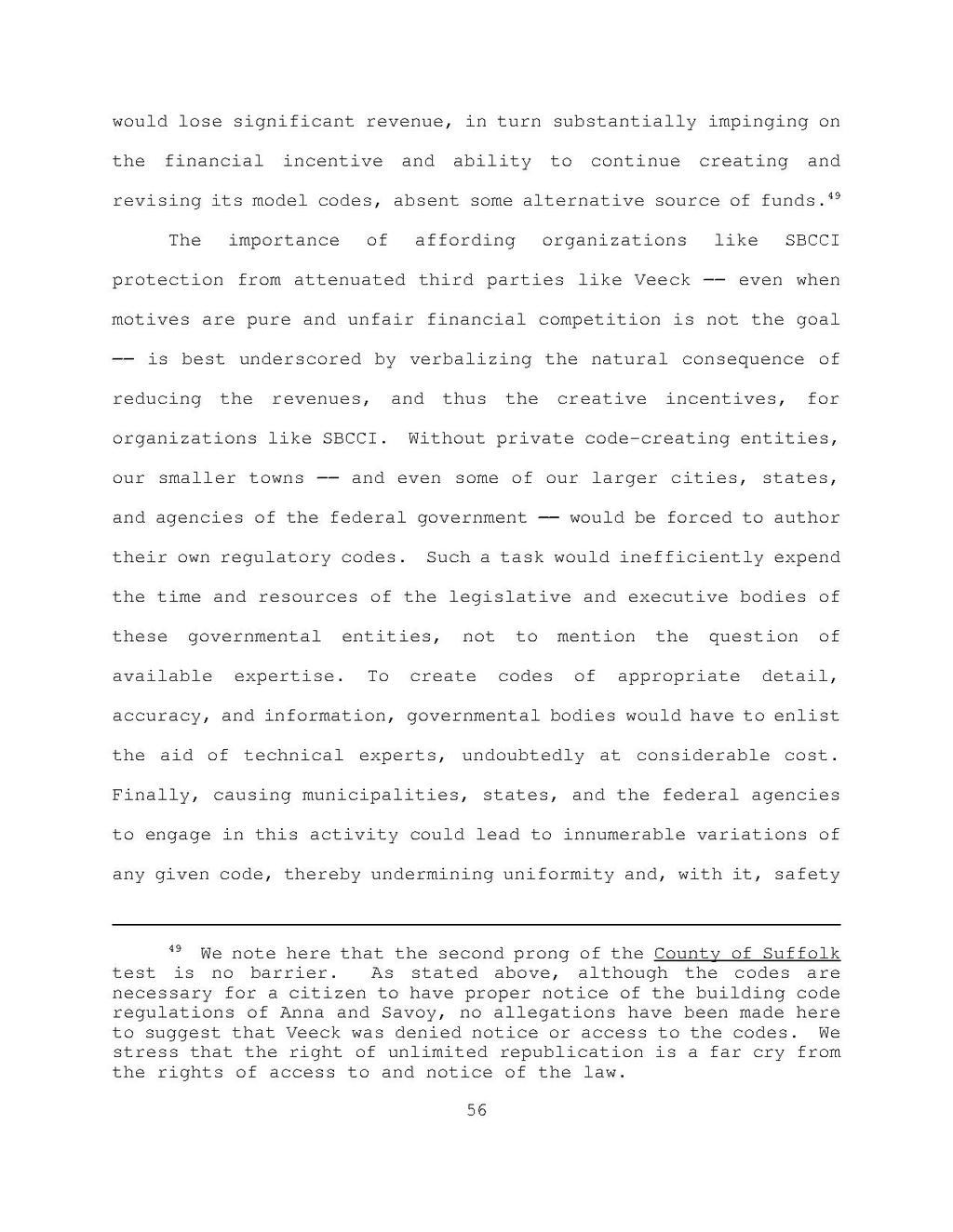would lose significant revenue, in turn substantially impinging on the financial incentive and ability to continue creating and revising its model codes, absent some alternative source of funds.[1] The importance of affording organizations like SBCCI protection from attenuated third parties like Veeck—even when motives are pure and unfair financial competition is not the goal—is best underscored by verbalizing the natural consequence of reducing the revenues, and thus the creative incentives, for organizations like SBCCI. Without private code-creating entities, our smaller towns—and even some of our larger cities, states, and agencies of the federal government—would be forced to author their own regulatory codes. Such a task would inefficiently expend the time and resources of the legislative and executive bodies of these governmental entities,not to mention the question of available expertise. To create codes of appropriate detail, accuracy, and information, governmental bodies would have to enlist the aid of technical experts, undoubtedly at considerable cost. Finally, causing municipalities, states, and the federal agencies to engage in this activity could lead to innumerable variations of any given code, thereby undermining uniformity and, with it, safety
- ↑ We note here that the second prong of the County of Suffolk test is no barrier. As stated above, although the codes are necessary for a citizen to have proper notice of the building code regulations of Anna and Savoy, no allegations have been made here to suggest that Veeck was denied notice or access to the codes. We stress that the right of unlimited republication is a far cry from the rights of access to and notice of the law.
56
